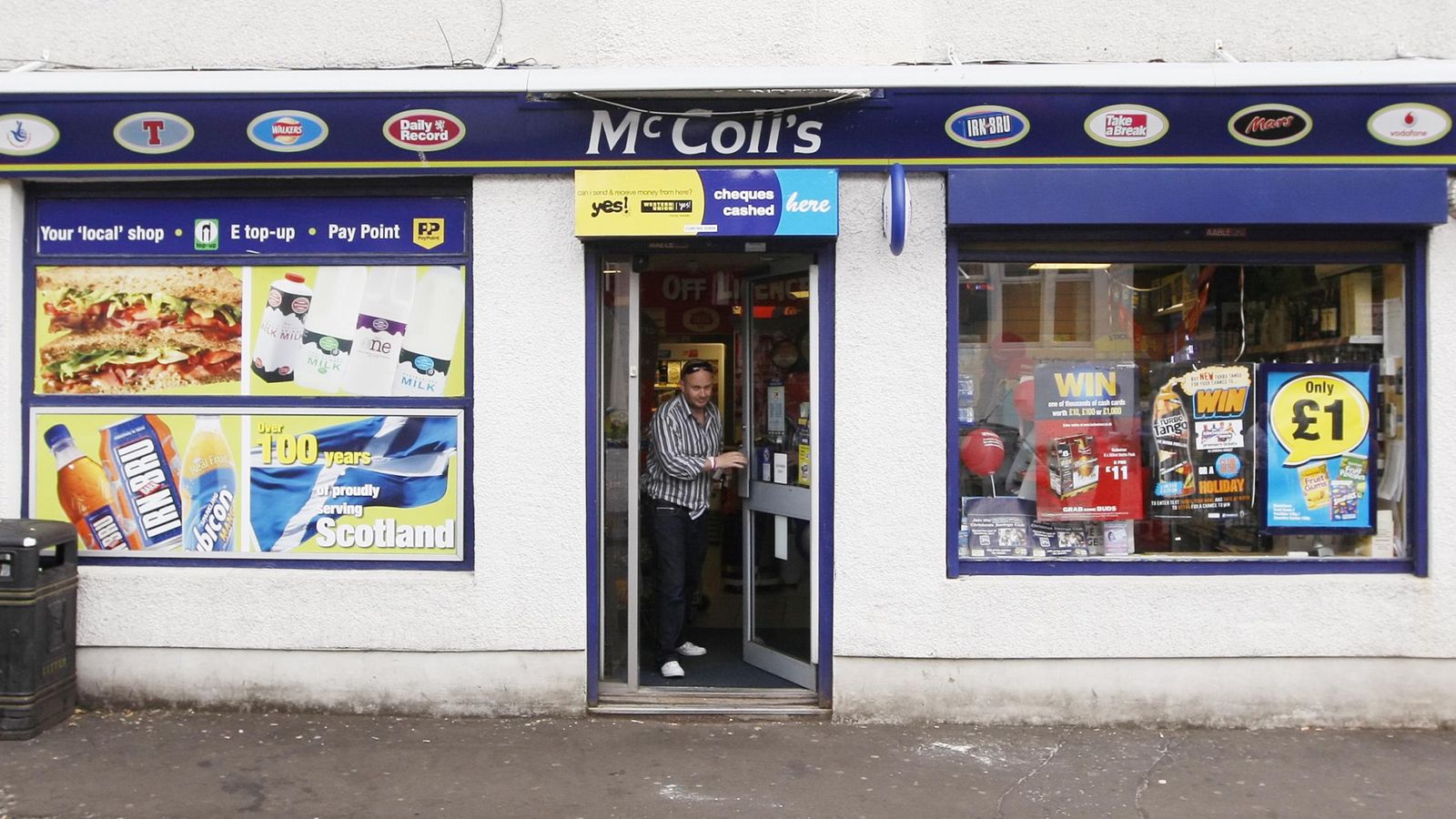McColl’s Retail Group, one of Britain’s biggest convenience store chains, is racing to secure new funding to stave off a collapse that could put thousands of jobs at risk.
Sky News has learnt that McColl’s is working with advisers on attempts to find a buyer or third parties willing to inject fresh capital into the business.
City sources said this weekend that McColl’s had a matter of weeks to secure new funding, with millions of pounds of its bank debt being sold to hedge funds and few obvious options to guarantee its future.
EG Group, the petrol stations giant controlled by Mohsin and Zuber Issa and the private equity firm TDR Capital, is said to have held discussions about making an offer for McColl’s but decided against doing so earlier this week, according to people close to the process.
The company, which is listed on the London Stock Exchange, employs about 16,000 people, or roughly 6000 on a full-time equivalent basis.
It raised £30m from shareholders in a cash call just six months ago.
McColl’s trades from approximately 1,100 convenience stores and newsagents across Britain, with about 200 of them now trading under the Morrisons Daily format through a partnership with the supermarket giant.
Wm Morrison, which agreed to a £7bn sale to the private equity firm Clayton Dubilier & Rice last year, is understood to be monitoring McColl’s situation closely with a view to possibly acquiring hundreds of its stores out of insolvency.
It is, however, not thought to be in active discussions about a takeover bid for the company as a whole.
In November, McColl’s announced that it would expand the number of Morrisons Daily conversions from 350 to 450 within a year.
If McColl’s fails to secure new funding and is forced into administration, it would be the largest insolvency in the UK retail sector by the size of the workforce since the collapse of Edinburgh Woollen Mill Group in 2020.
Since then, both Debenhams, which employed about 12,000 people, and Sir Philip Green’s Arcadia Group, which had a workforce numbering roughly 13,000, have also gone bust, becoming casualties of changing retail shopping habits and the pandemic.
McColl’s has endured torrid trading conditions and now has a market capitalisation of less than £20m.
The company carries debts of almost £170m, with a lending syndicate that includes Barclays, HSBC, NatWest Group and Santander UK.
In recent weeks, however, some of its banks have been trading the debt, with the hedge fund Silver Point understood to be among those which have bought into it.
Retail industry sources said that McColl’s shares were now effectively “worthless” and that a pre-pack administration or other forms of insolvency increasingly looked like the most likely outcome.
People close to the company expressed hope this weekend that a solvent solution could yet be found.
McColl’s lenders are being advised by PricewaterhouseCoopers, while Stephens Europe, a corporate finance firm, is leading the search for additional capital.
The company has told investors that it will publish its full-year results in late March, and an extension of its timetable for securing new funding is possible if its lenders support such a move.
Jonathan Miller, McColl’s chief executive, said in December that the financial year had “undoubtedly been a tough year for the business, starting with the impact of COVID-19 restrictions and ending with the widely reported and ongoing supply chain challenges”.
“Although we have been able to partly mitigate these external factors, they have still had a significant impact on underlying trading,” he added.
Mr Miller is understood to have invested £3m personally in the fundraising last summer in a bid to convince other shareholders to support the company.
Shares in McColl’s closed on Friday at 7p, having slumped by nearly 70% over the last year.
A spokesman for the company declined to comment.
